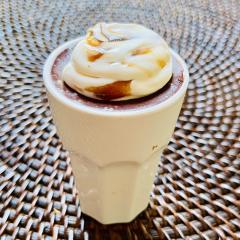-
Welcome to the eG Forums, a service of the eGullet Society for Culinary Arts & Letters. The Society is a 501(c)3 not-for-profit organization dedicated to the advancement of the culinary arts. These advertising-free forums are provided free of charge through donations from Society members. Anyone may read the forums, but to post you must create a free account.
The 'classics' of pastry
-
Similar Content
-
- 118 replies
- 33,424 views
-
- 8 replies
- 2,781 views
-
- 11 replies
- 3,051 views
-
- 1 reply
- 1,771 views
-
Pastry cream tricks? 1 2 3
By sygyzy,
- 62 replies
- 26,167 views
-
-
Recently Browsing 0 members
- No registered users viewing this page.





Recommended Posts